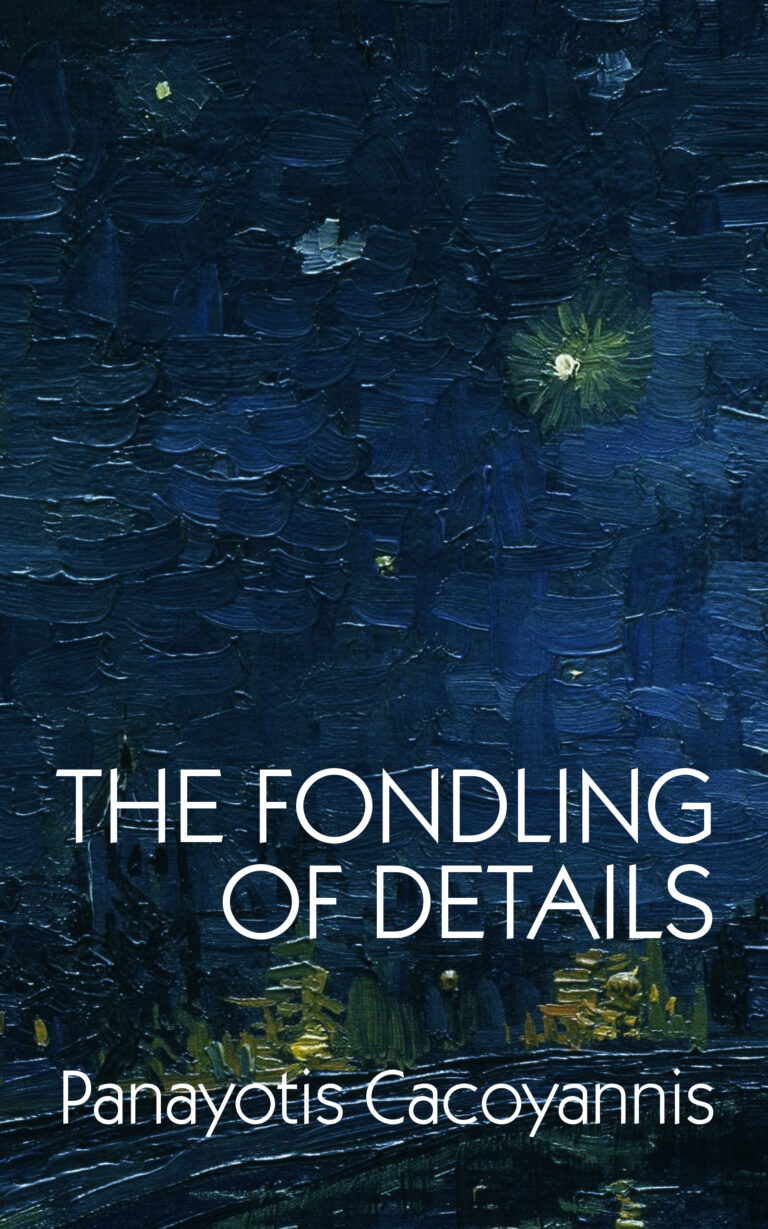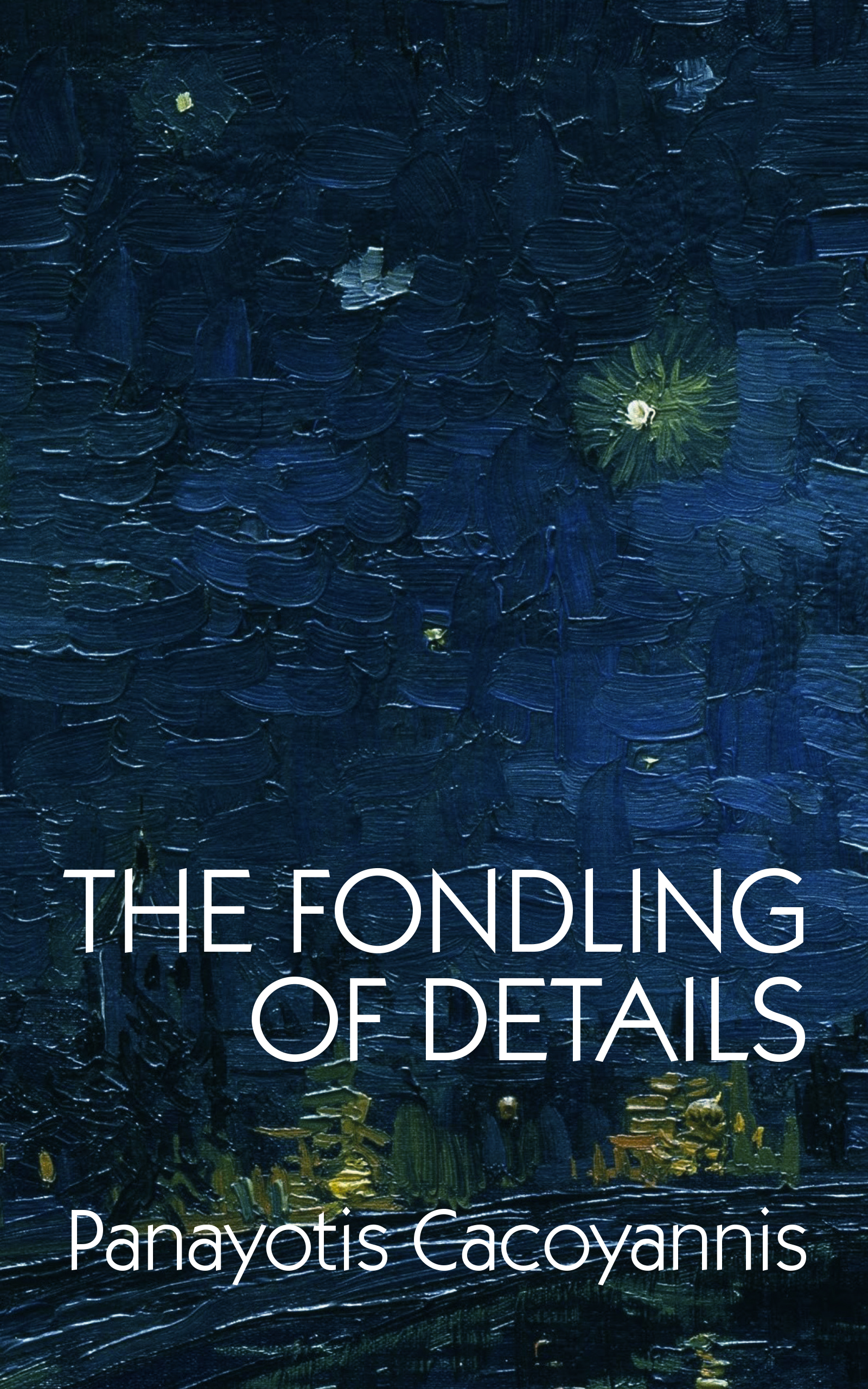Harry came to prominence with a batch of gritty, social-realist paintings, including beautiful portraits of unhoused people in London. But now, his manager Amanda has ensconced him in a bewildering vortex of meaningless words; he’s gone through long periods without painting at all; and, although he deeply loves his husband Max, he’s still struggling to understand his own affair with a stranger he met on a train.
Panayotis Cacoyannis’s THE FONDLING OF DETAILS has a clear, strong thematic core. There’s no question about the text’s sympathies when it disdainfully observes “that section of the super-rich who regard a social conscience as the must-have, ultimate accessory,” propelling Harry to minor stardom without meaningfully engaging with the content and themes of his art. The story powerfully follows through, boldly portraying an unhoused person not only as an important character but as an object of romantic desire equal to the protagonist. Crucially, that unhoused man (Gregor) is an artist himself; he relates his own lived experience to that of Gregor Samsa of “The Metamorphosis,” a human being whom society has come to treat as hideous vermin. Thus, Harry is not the only character who fundamentally relates to the world through art, and who explicitly expresses the central questions of the text: what is the relationship between art and justice? Does art have meaning if it is devoid of political force? These critical ideas are often negotiated in supple, complex sentences, but THE FONDLING OF DETAILS also arrests the reader with simple, powerful phrases like, “the sky was pale and vast”—starkly and beautifully reiterating the contrast between the frail human cast and the world of systems, structures, and ideas to which they relate.
With this clear focus on powerful themes, sometimes the plot feels a little too neatly constructed. The central characters relate to each other through a web of chance connections and coincidences that strain credulity if looked at head-on. Some major turns in the plot seem more about generating drama and propelling events to some reasonable conclusion than they are about developing theme or character (especially some sad deaths, which have surprisingly little effect on the ultimate resolution of the story). But THE FONDLING OF DETAILS is no worse in this regard than, say, classic Victorian literature; and these foibles don’t detract from the confident focus on art, love, and social justice—which is the real interest of the text.
Though some of the plot feels perfunctory at times, Panayotis Cacoyannis’s THE FONDLING OF DETAILS is clear in its scenic evocation of London, its disdain for art and art criticism without humanity, and its sympathy for the confusion of everyday people struggling to understand themselves and each other.
~Dan Accardi for IndieReader


